第13章 III(3)
The girl would have gone through fire for her "PRECIOUS Lehzen," the "best and truest friend," she declared, that she had had since her birth. Her journal, begun when she was thirteen, where she registered day by day the small succession of her doings and her sentiments, bears on every page of it the traces of the Baroness and her circumambient influence. The young creature that one sees there, self-depicted in ingenuous clarity, with her sincerity, her simplicity, her quick affections and pious resolutions, might almost have been the daughter of a German pastor herself. Her enjoyments, her admirations, her engouements were of the kind that clothed themselves naturally in underlinings and exclamation marks. "It was a DELIGHTFUL ride. We cantered a good deal. SWEET LITTLE ROSY WENT BEAUTIFULLY!! We came home at a 1/4 past 1... At 20 minutes to 7 we went out to the Opera... Rubini came on and sang a song out of 'Anna Boulena' QUITE BEAUTIFULLY. We came home at 1/2 past 11." In her comments on her readings, the mind of the Baroness is clearly revealed.
One day, by some mistake, she was allowed to take up a volume of memoirs by Fanny Kemble. "It is certainly very pertly and oddly written. One would imagine by the style that the authoress must be very pert, and not well bred; for there are so many vulgar expressions in it. It is a great pity that a person endowed with so much talent, as Mrs. Butler really is, should turn it to so little account and publish a book which is so full of trash and nonsense which can only do her harm. I stayed up till 20 minutes past 9." Madame de Sevigne's letters, which the Baroness read aloud, met with more approval. "How truly elegant and natural her style is! It is so full of naivete, cleverness, and grace." But her highest admiration was reserved for the Bishop of Chester's 'Exposition of the Gospel of St. Matthew.' "It is a very fine book indeed. Just the sort of one I like; which is just plain and comprehensible and full of truth and good feeling. It is not one of those learned books in which you have to cavil at almost every paragraph. Lehzen gave it me on the Sunday that I took the Sacrament." A few weeks previously she had been confirmed, and she described the event as follows: "I felt that my confirmation was one of the most solemn and important events and acts in my life; and that I trusted that it might have a salutary effect on my mind. I felt deeply repentant for all what I had done which was wrong and trusted in God Almighty to strengthen my heart and mind; and to forsake all that is bad and follow all that is virtuous and right. I went with the firm determination to become a true Christian, to try and comfort my dear Mamma in all her griefs, trials, and anxieties, and to become a dutiful and affectionate daughter to her. Also to be obedient to DEAR Lehzen, who has done so much for me. I was dressed in a white lace dress, with a white crepe bonnet with a wreath of white roses round it. I went in the chariot with my dear Mamma and the others followed in another carriage." One seems to hold in one's hand a small smooth crystal pebble, without a flaw and without a scintillation, and so transparent that one can see through it at a glance.
Yet perhaps, after all, to the discerning eye, the purity would not be absolute. The careful searcher might detect, in the virgin soil, the first faint traces of an unexpected vein. In that conventual existence visits were exciting events; and, as the Duchess had many relatives, they were not infrequent; aunts and uncles would often appear from Germany, and cousins too.